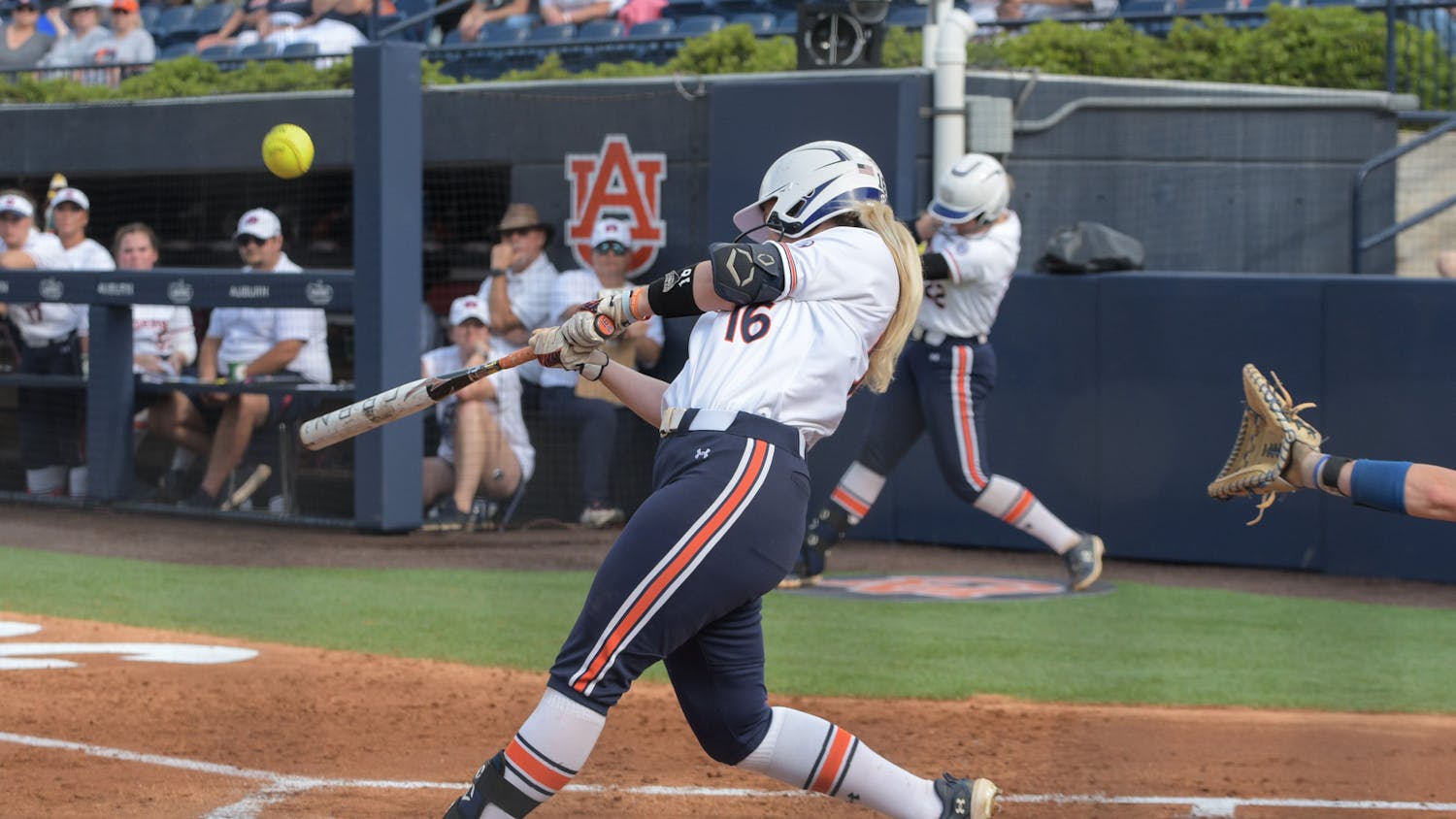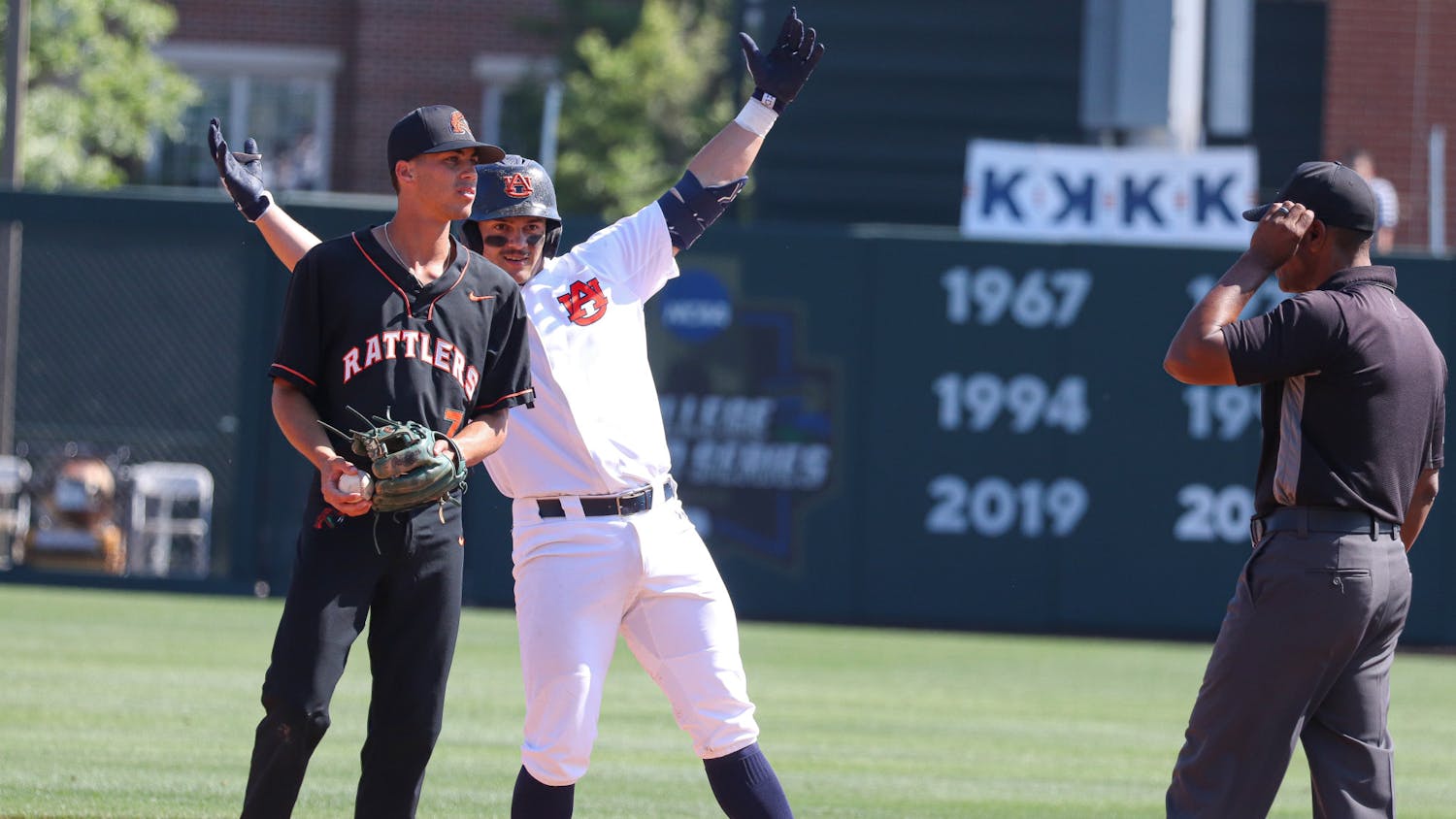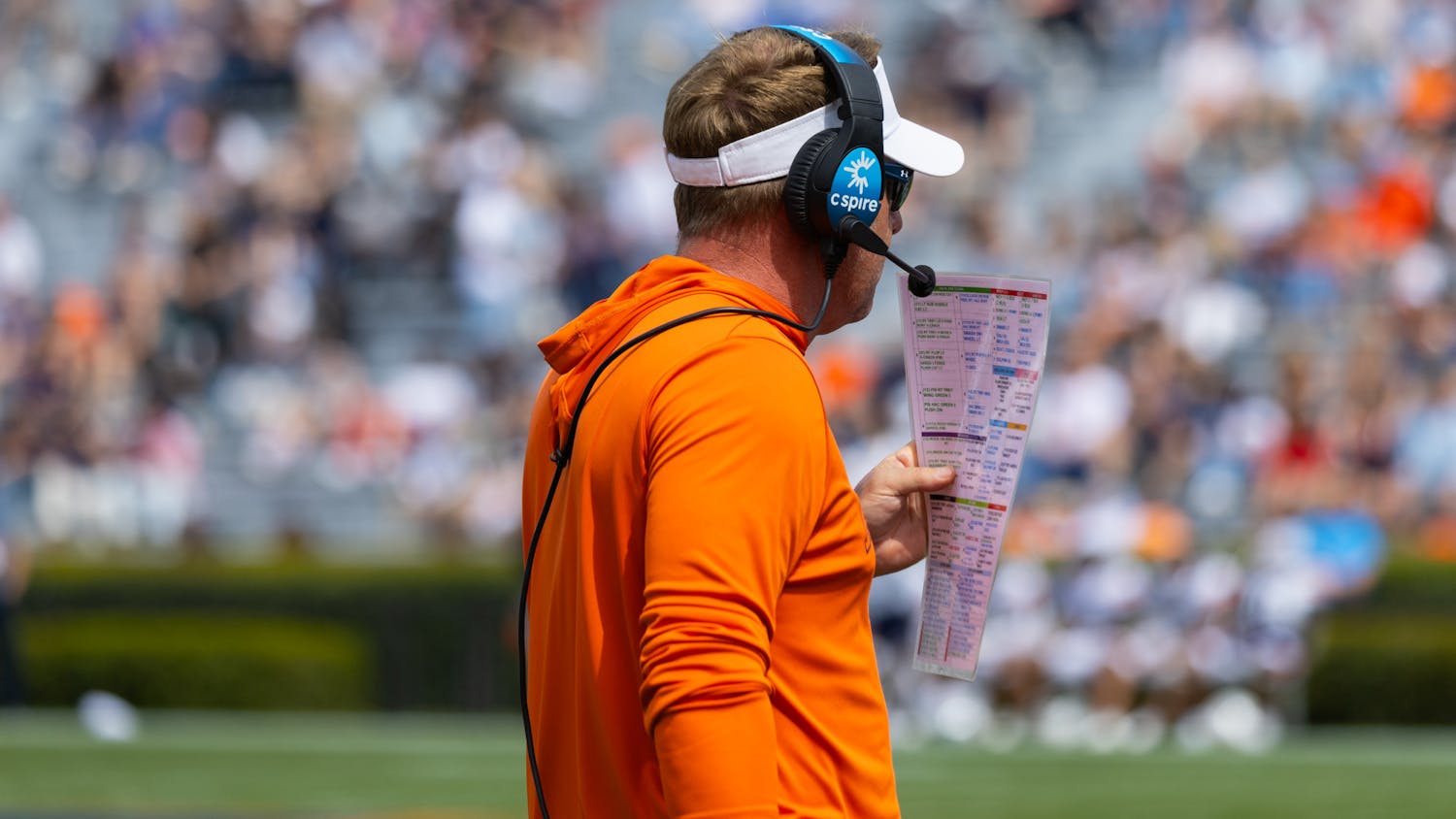Tripp Gulledge wasn’t always blind.
He started losing his vision at 6 weeks old when his retinas detached.
“They were able to save a little bit of vision in my right eye, and I kind of got by with that until I was 14 years old,” Gulledge, freshman in music said. “That’s when my retina started to detach again.”
Doctors were able to reattach his right retina, but they had to remove the lens.
“Until I get that back, I won’t have any sight,” Gulledge said.
Gulledge hasn’t let his disability hold him back. He discovered he had a talent for French horn when he was in middle school. He was drum major at Murphy High School and is now a member of the Auburn University Marching Band.
Gulledge said most of his energy is devoted to marching band.
“We work way faster [than in high school], and there’s a lot more expected of you,” Gulledge said. “Physically, it’s a lot more demanding.”
Gulledge is currently learning to read braille music. However, he said he learns most of the music by ear.
"It's very different, and it's kind of been a slow process," Gulledge said. "What’s actually worked the quickest is when I listen to the person immediately to my left or to my right. In marching band we do so many reps of the same thing, and a lot of people say ‘Oh my God, we’re doing it again.’ But it works out well for me because I get so many chances to hear it."
Navigating the field has been a challenge, according to Gulledge, but he’s getting the hang of it.
Gulledge is currently shadowing another French horn player, Alex King, freshman in biosystems engineering. He holds King's shoulder during practice and memorizes his steps.
King said Gulledge has incredible talent.
"Being blind and doing something that requires you to move around on a field, in form with everybody else, is quite a task to do," King said. "What Tripp has been able to do every day is quite incredible to watch, honestly."
Corey Spurlin, marching band director, said Gulledge inspires him every day.
“It’s amazing what he’s been able to accomplish without having the benefit of sight,” Spurlin said. “In an activity like ours, that’s certainly a big challenge. We really value his membership, and he’s done an incredible job.”
When Gulledge isn’t at band practice, he’s studying to be a music teacher.
He gets to his classes with his cane and the help of his yellow Labrador Retriever, Dakota. Gulledge only adopted Dakota in June, but the two have already formed a strong bond.
“Dakota is super cute,” Gulledge said. “Part of it is me becoming friendly with the campus myself, and the other part is getting him patterned to what my routes will be. He begins to anticipate where we’re going.”
Gulledge said Dakota went through a rigorous training process before he received his guide dog certification.
He went to a general obedience trainer for about a year. After that, he went to four months of formal guide dog training where he learned to work with a harness, find crosswalks and get around obstacles.
"He's a great dog and he's very obedient," Gulledge said.
Gulledge said he knew Auburn was right for him the second time he toured campus.
“I started to observe that ‘family’ atmosphere everyone talks about,” Gulledge said. “I recognized that sense of pride and tradition.”
Gulledge has only been a student for a few days, but he said he has loved his Auburn experience so far.
“My professors are really, really good at what they do,” Gulledge said. “I want to teach when I get older, and I’ve seen a lot of people being the kind of teachers I want to be.”
Do you like this story? The Plainsman doesn't accept money from tuition or student fees, and we don't charge a subscription fee. But you can donate to support The Plainsman.



